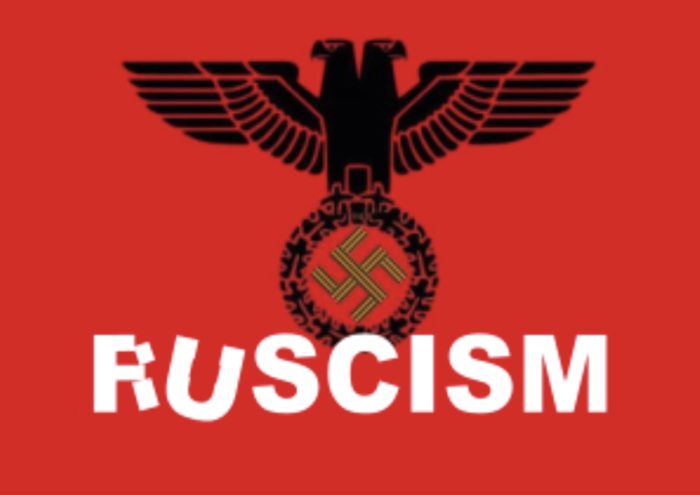The Verkhovna Rada of Ukraine has recognized Ruscism as the state ideology of Russia. According to Ukraine's Center for Strategic Communications under the Ministry of Culture, here is what it means.
On 2 May, the Ukrainian Parliament officially recognized Russia's state ideology as Ruscism. According to Ukraine's Center for Strategic Communications,
- the aggressive hatred of those whose opinions differ from traditional Russian propaganda
- the ideology of the Russian Orthodox Church's (ROC) spiritual theory of Russian "chosenness"
According to the Center for Strategic Communications, Ruscism is characterized by the denial of the rule of law and the assertion of the right to use force, disregard for the sovereignty of neighbors; and self-assertion via arbitrariness and violence.
Additionally, "Ruscism" has adopted characteristics of totalitarian ideologies of the past, including fascism, Nazism, and Stalinism.
- "We have never attacked anyone"
- "Russians do not attack, they only liberate"
- "A coup d'état organized by America took place on the Maidan"
- "Ukraine and Ukrainians do not exist; it is an artificial, invented nation"
- "Crimea seceded on its own because the people of Crimea did not support the coup d'état"
- "The cities of southern Ukraine were founded by Russian rulers"
- "Crimea is Russian because a referendum was held there"
- "Ukraine has attacked and is killing the people of Donbas"
According to the Center for Strategic Communications, recognizing Russia's ideology as Ruscism will officially establish the name and definition of the phenomenon that Ukrainians are opposing.
This "will help to form a unified approach of international institutions to defining Russian policy" and in the future "will facilitate bringing Russian war criminals to real responsibility," the StratCom wrote.
Read also:
Ukrainian parliament recognizes Ruscism as Russia’s state ideology
Why have Z and V become Russia’s symbols of war against Ukraine?

